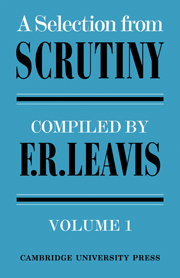1 - THE CAMBRIDGE TRADITION
Published online by Cambridge University Press: 08 January 2010
Summary
Haddon the Head Hunter, by A. H. Quiggin (C.U.P.)
Everyone knows that A. C. Haddon established the study of Anthropology at Cambridge. How he managed to do so is less common knowledge, so it is fortunate that the biography we have been given is frank about the subject. The facts are recorded with some appropriate though subdued indignation, and it is well that the facts should be put on record, instead of the usual humbug which whitewashes an institution at the expense of the victim. Chapters five and six, called ‘Cambridge and Anthropology’, provide instructive documentation about how an institution, endowed to promote learning and light, behaves when it is offered the services of a uniquely qualified specialist and teacher who is concerned to break new ground.
Haddon, after leaving Cambridge, became a zoologist, but an expedition he undertook to Torres Straits in 1889 convinced him that while Zoology could wait, the materials for the study of Anthropology must be collected at once before it was too late. Cecil Sharp made a similar discovery about English Folk-song and Dance, but as his materials lay at his back door, so to speak, he was able to collect them and support himself concurrently. Haddon was in a more awkward position—his data existed in Oceania. He was urged to devote his remarkable talents to Anthropology by such eminent pioneers as Frazer and Huxley, and in 1893 Haddon moved from Dublin, where he was professor of Zoology, to Cambridge, in hopes of getting endowment.
- Type
- Chapter
- Information
- A Selection from Scrutiny , pp. 1 - 46Publisher: Cambridge University PressPrint publication year: 1968
- 3
- Cited by



